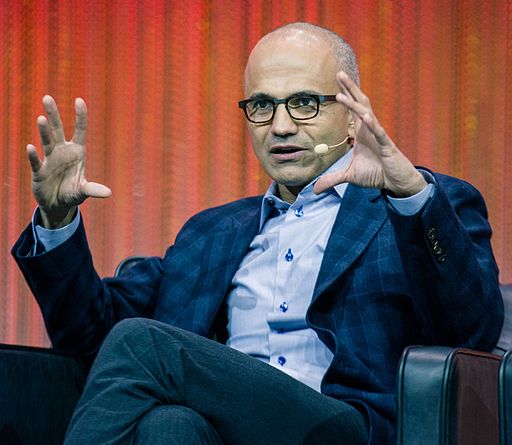It is a wonderful experience to witness the unfolding of a great success story, especially when it comes from humble beginnings. Very few companies can revolutionise humanity the way Microsoft did, and to think of its origin-something that started as an experiment inspired by an 80’s electronic magazine, is rather extraordinary.
Microsoft was born when the pair- Bill Gates and Paul Allen noticed an ardent need in the market to build a basic interpreter for Altair 8800, an early personal computer. It worked out great for them. The next step, and probably the most profound step in the making of Microsoft, involved providing the operating system for IBM’s first personal computer. Later that decade, they introduced Microsoft’s signature windows. Since then, Microsoft has been the world’s largest personal computer software company.
Today, Microsoft is a multinational corporation worth billions of assets. It’s considered as one of the Big 5 companies in the U.S. IT industry competing against huge conglomerates like Amazon, Google(Alphabet), Facebook (Meta) & Apple.
But the important question is, despite the evolving market trends and the constant introduction of new technologies, how did a tech company manage to stay at the top for over five decades?
Table of Contents
Prominent Astro Strategist and Business Development Expert Hirav Shah shares his take on what he thinks are the key reasons for Microsoft’s remarkable success:
Stick to your roots
Back in the days, Microsoft was the textbook definition of a novel and white collared business that excels in innovation rather than marketing. Over the years, Microsoft paved the way for innovators who focused on sustainable development. They believe in addressing culture, processes, and holistically enabling technology. This makes them so much more than the classic cash-grabbing MNCs who think of only money and profitability.
The Nadella effect

OFFICIAL LEWEB PHOTOS, CC BY 2.0, via Wikimedia Commons
When Satya Nadella dethroned Steve Ballmer to become the third boss of Microsoft in 2014, he was in a precarious position. Microsoft was on the brink of invisibility. Microsoft had somehow survived Ballmer’s catastrophic tenure and badly needed a new leader who could help the company rebrand itself. Nadella acted as a God sent for Microsoft.
He invested in cloud computing platforms that stand to dominate the next generation of technology which increased Microsoft’s re-visibility in the tech industry’s collective radar. He also reformed the company’s work ethos. Microsoft, which was formerly known as corporate bullies, had to change its corporate culture to attract new technical talent and boost morale.
This not only saved Microsoft from decimating from the face of the earth, but also brought the company back to its former glory. “That fundamental notion that we build tools, build platforms so that others can build more technology, I think is more relevant, more needed in 2019 than it was in 1975,” Nadella says- a far cry from Ballmer’s vision for expansion.
Making fundamental shifts in the market
The biggest difficulty young companies face is adjusting themselves to changing market trends. In the initial years, Microsoft’s slavish devotion towards the boxed-software model created major dents for the company’s reputation. But eventually, they learned from their mistakes. Over the years, Microsoft effectively created—then dominated—a brand-new market by cleverly anticipating bigger shifts in the nascent home computing market.
This poses a good example for emerging companies to evaluate their business model. Owners need to calculate whether there is a need to pivot or adjust their growth strategy to compensate for emerging threats or not. Only with careful evaluation and planning, a company can flourish in the coming years and Microsoft is a good example of that.
Conclusion
Hirav Shah says, “Microsoft may not be able to boast about its reputation like Google and Facebook. It does, however, deserve an ample amount of respect for occupying a truly unique place in the history of computing technology. Without Microsoft, we wouldn’t have a working operating software and without OS navigating our electronic devices would prove to be a real challenge. The company’s staunch belief in innovation and technology has been a driving force in mankind’s development.”
Microsoft continues to set the bar high for future innovators and promises a better future. It is most pertinent that Microsoft would continue to be a leader in IT despite changing marketing trends- concludes Hirav Shah, an expert in Business enhancement and escalation.












